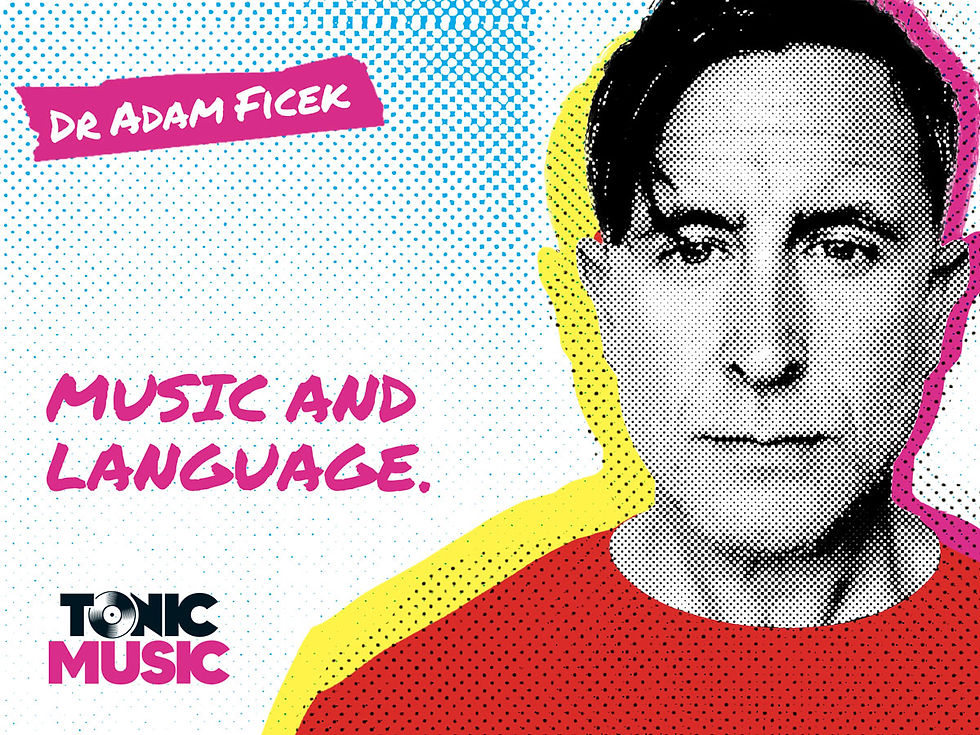Music and Language.
- Team Tonic

- Aug 15, 2025
- 2 min read
Continuing on from a previous blog I wanted to explore more on music and our grey matter.

I want to explore more of Stefan Koelsch’s central ideas surrounding music and the brain - Brain correlates of music-evoked emotions - especially how music affects us in a similar way as language.
Both language and music involve a structured system of symbols that we interpret for meaning, and both engage similar areas of the brain, such as the auditory cortex, prefrontal cortex, and limbic system (big words, go google them, I’m not a neurologist). However, our beloved music and musicking takes this one step further by stimulating our emotional processing more directly than language. For instance, music can trigger the release of dopamine, (that big buzz word of social media) our brain’s 'feel-good' chemical, giving us that unmistakable rush when we hear our favourite tune - read more on this with Koelsch's paper - 'Towards a neural basis of music-evoked emotions'.
Koelsch (the boss) also highlights music’s power as a social glue. Listening to or performing music together can synchronise brain activity and promote feelings of unity. Think about how a crowd at a concert feels like one big family, or how singing in a choir can foster a deep sense of belonging. This is partly because music activates the brain’s reward system, making social bonding more enjoyable as discussed in many previous blogs.
Koelsch also reiterates what we all know about music’s ability to regulate our emotions. When we’re stressed or anxious, music can serve as a kind of sensory therapy. As it interacts with our autonomic nervous system it lowers heart rate and reduces our cortisol levels, essentially calming us down. On the flip side, music can also energise and motivate us, think of a great workout playlist or a rousing anthem that gets the adrenaline pumping.
Koelsch’s work also suggests that music taps into a universal human experience, although some do dispute this! Generally, across cultures, people respond to similar musical elements, for example, major type chords often feel happy, while minor chords evoke sadness. This universality shows that music’s emotional impact isn’t just a cultural construct, but something deeply rooted in all of our human biology. This is probably why it forms such an important part of all of our lives, regardless of where we have come from locationally or culturally.
In a nutshell (I use that phrase a lot), Koelsch’s research paints an interesting and compelling picture of music as more than just entertainment or our favourite hit. It’s a universal language of emotion, a tool for social connection, and maybe a source of wellbeing - for more read 'The Brain and Positive Biological Effects in Healthy and Clinical Populations'.
Go check out Koelsch’s work in the links above.

Adam Ficek hosts a monthly show 'Tonic Music' on Totally Wired Radio, where he talks to various guests about music and mental health. You can listen again to any of the previous show on the Tonic Music Mixcloud page.




